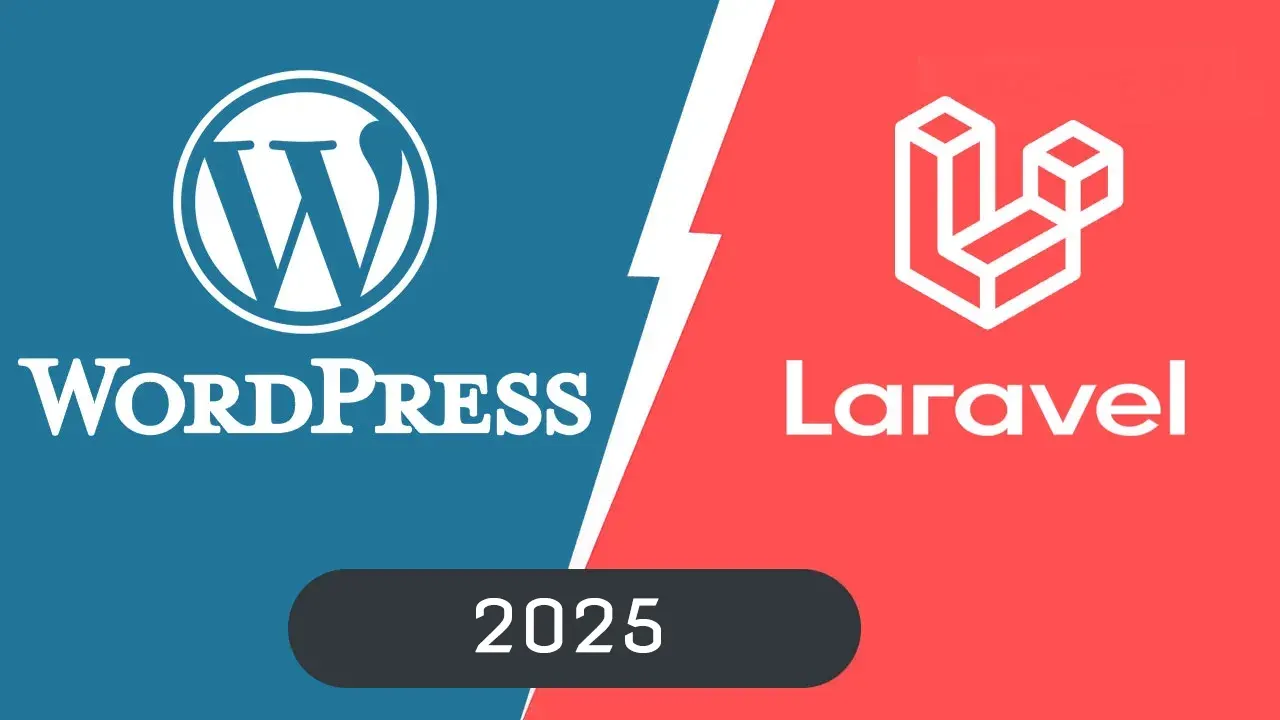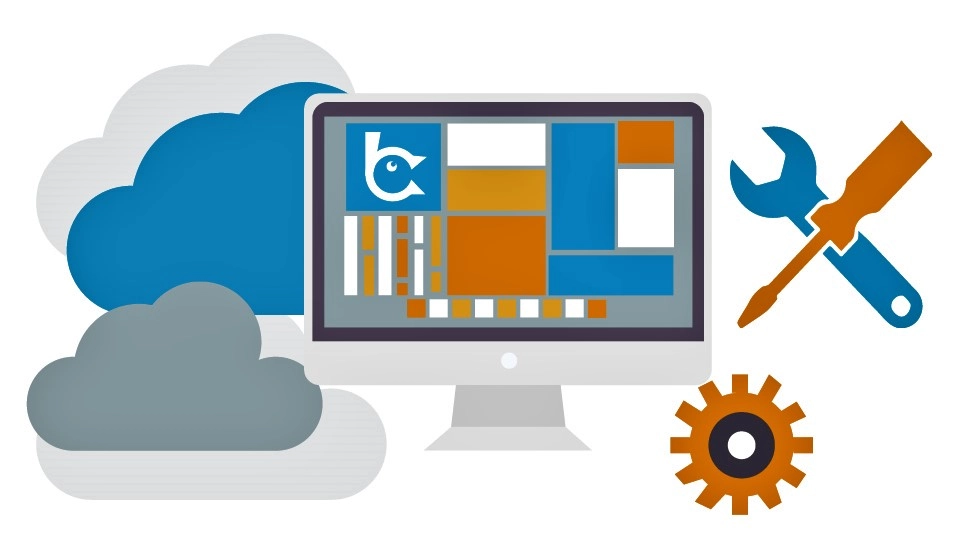Choosing the right platform or framework can make or break your digital project. As we navigate through 2025, two powerful contenders continue to dominate discussions among developers and business owners alike: WordPress and Laravel. Each offers distinct advantages, but which one truly deserves your investment? Let’s dive deep into this comparison to help you make an informed decision for your specific needs.

Understanding the Fundamentals
WordPress: The Content Management Giant
WordPress began its journey in 2003 as a simple blogging platform but has since evolved into the world’s most popular content management system (CMS), powering approximately 43% of all websites on the internet. Its primary strength lies in its user-friendly interface and extensive ecosystem.
At UniWebAu, we’ve implemented countless WordPress solutions for clients seeking balance between functionality and ease of use. WordPress operates on PHP and MySQL, offering a plug-and-play approach to website development with minimal technical knowledge required.
Laravel: The PHP Framework Powerhouse
Laravel emerged in 2011 as a modern PHP framework designed to simplify web application development through elegant syntax and developer-friendly tools. Unlike WordPress, Laravel isn’t a CMS but rather a robust framework that provides the structure and components for building custom web applications from scratch.
Our custom development team leverages Laravel’s architecture to create tailored solutions when clients need specific functionality that pre-built platforms can’t easily provide.
Key Factors to Consider in 2025
- Development Speed and Flexibility
WordPress Perspective: WordPress excels at rapid deployment. With thousands of themes and plugins, you can launch a functional website within hours or days rather than weeks or months. This advantage has become even more pronounced with the maturation of block editors like Gutenberg, which now offer drag-and-drop functionality comparable to dedicated page builders.
However, the trade-off comes when you need highly customized solutions. While WordPress can be extended, complex customizations often lead to a tangle of plugins and custom code that can become difficult to maintain over time.
Laravel Perspective: Laravel shines when it comes to building custom applications with specific requirements. The framework provides a clean, architectural foundation that facilitates organized development of complex systems. With features like Blade templating, Eloquent ORM, and robust routing, Laravel delivers unmatched flexibility for developers.
The downside? Development time is significantly longer as everything must be built from the ground up. Even with Laravel’s elegant toolkit, you’re still responsible for creating the entire application structure, user interfaces, and content management systems.
- Performance and Scalability
WordPress Performance: WordPress has made significant performance improvements in recent years, but it still carries the legacy of its plugin-heavy architecture. Each activated plugin adds PHP code that must be processed, potentially slowing down page load times.
In 2025, WordPress has embraced serverless architecture options and improved its caching capabilities, but sites with dozens of active plugins still face performance challenges under heavy traffic conditions. The UniWebAu optimization service often focuses on reducing plugin bloat and implementing advanced caching for WordPress sites.
Laravel Performance: Laravel applications typically outperform WordPress in terms of raw speed and resource efficiency. Since Laravel applications are purpose-built, they contain only the code needed for specific functionality rather than accommodating numerous potential use cases.
The framework’s built-in caching systems, queue management, and efficient database query builder contribute to creating applications that can handle high traffic volumes without significant performance degradation. For enterprise-level applications expecting substantial growth, Laravel often proves the more scalable choice.
- Security Considerations
WordPress Security: As the most popular CMS, WordPress remains a primary target for hackers. Its vast plugin ecosystem introduces potential vulnerabilities if extensions aren’t properly maintained or vetted. The 2024 WordPress Security Report revealed that plugin vulnerabilities accounted for 68% of WordPress security issues.
That said, WordPress Core itself has maintained a strong security record, with the WordPress Security Team quickly addressing vulnerabilities. Regular updates and security plugins can mitigate most common threats, though maintaining dozens of plugins and themes creates an ongoing security responsibility.
Laravel Security: Laravel was built with security as a fundamental consideration. The framework includes built-in protection against common web vulnerabilities like SQL injection, cross-site scripting (XSS), and CSRF attacks. Additionally, Laravel’s authentication and authorization systems are robust and easy to implement correctly.
Custom-built Laravel applications typically have a smaller attack surface compared to WordPress sites with numerous third-party components. However, this advantage only applies when development follows security best practices—poorly written custom code can introduce vulnerabilities regardless of the framework.
- Content Management Capabilities
WordPress Content Management: Content management is WordPress’s primary strength. Its intuitive admin interface allows non-technical users to create, edit, and organize content without developer assistance. The platform’s media management, user role system, and content scheduling features remain unmatched in simplicity and effectiveness.
The block editor ecosystem has matured significantly by 2025, offering true visual editing capabilities that rival dedicated page builders while maintaining cleaner code output. For content-heavy websites, WordPress remains the undisputed champion.
Laravel Content Management: Laravel doesn’t include a content management system out of the box. Developers must either build custom CMS functionality or integrate existing packages like Laravel Nova or Filament.
This approach results in highly tailored administrative interfaces that precisely match project requirements but requires significantly more development time. For content managers familiar with WordPress, the learning curve for custom Laravel admin panels can be steep.
- Maintenance and Long-term Support
WordPress Maintenance: WordPress maintenance primarily involves keeping core, themes, and plugins updated. The automated update system has improved dramatically, reducing the likelihood of update-related issues. However, websites with complex plugin interdependencies still require careful testing before updates.
The platform’s massive community ensures that WordPress itself will remain supported for the foreseeable future, though individual plugins may be abandoned by developers. Our maintenance plans often focus on monitoring plugin health and finding alternatives when necessary.
Laravel Maintenance: Laravel applications typically require less frequent maintenance but more specialized expertise when updates are needed. The framework follows a predictable release schedule with clear deprecation policies, making version upgrades more manageable than dealing with multiple independent plugins.
Custom Laravel applications are less susceptible to issues caused by third-party component updates, but they do require developers familiar with both the framework and the specific application architecture when modifications are needed.
Making Your Decision: When to Choose Each Option
Choose WordPress When:
- Content is your primary focus – Blogs, news sites, and marketing websites benefit tremendously from WordPress’s content management capabilities.
- Time-to-market is critical – When you need to launch quickly with a limited budget, WordPress enables rapid deployment.
- Non-technical users need control – If your team lacks technical expertise but needs to manage content independently, WordPress’s intuitive interface is invaluable.
- You need a cost-effective solution – For small to medium businesses without complex custom requirements, WordPress offers the most functionality per dollar invested.
- You’re building a conventional website – Informational websites, small business sites, portfolios, and standard e-commerce stores are WordPress’s sweet spot.
Visit our WordPress Development page to learn more about how we can help build your WordPress solution.
Choose Laravel When:
- You need custom application functionality – If your project goes beyond content presentation into custom data processing, user interactions, or unique workflows, Laravel provides the necessary flexibility.
- Performance at scale is paramount – For applications expecting significant traffic or complex database operations, Laravel’s efficiency advantages become increasingly important.
- You’re building for the long term – Custom applications with clean architecture tend to be more maintainable over many years than plugin-heavy WordPress sites.
- Security requirements are stringent – In highly regulated industries or for applications handling sensitive data, Laravel’s security architecture offers advantages.
- Your project requirements are unique – When existing WordPress plugins don’t quite meet your needs, the customization freedom of Laravel becomes invaluable.
Explore our Custom Development services to see how Laravel can power your custom web application.
The Hybrid Approach: Getting the Best of Both Worlds
Increasingly, we’re implementing hybrid solutions that leverage both technologies:
- Headless WordPress with Laravel Frontend – Using WordPress as a content management backend while delivering the content through a Laravel application that handles custom functionality.
- Laravel Applications with WordPress Blogs – Building the core application in Laravel while maintaining a separate WordPress installation for the blog or content sections.
- WordPress with Laravel Microservices – Using Laravel to build specific functionality that integrates with a WordPress site through APIs.
At UniWebAu, our development team is experienced in both technologies, allowing us to recommend and implement the optimal solution for each client’s specific requirements.
Conclusion
As we navigate through 2025, the choice between WordPress and Laravel isn’t about which is universally “better,” but rather which tool better serves your specific project’s needs.
WordPress continues to excel as a content management platform with unmatched ease of use and a vast ecosystem of extensions. Laravel remains the superior choice for custom web applications that require unique functionality, superior performance, and complete developmental flexibility.
The most successful projects begin with a thorough analysis of requirements before committing to a technology stack. Contact our team for a consultation to determine which option—or which combination of these powerful technologies—will best serve your digital goals in 2025 and beyond.


